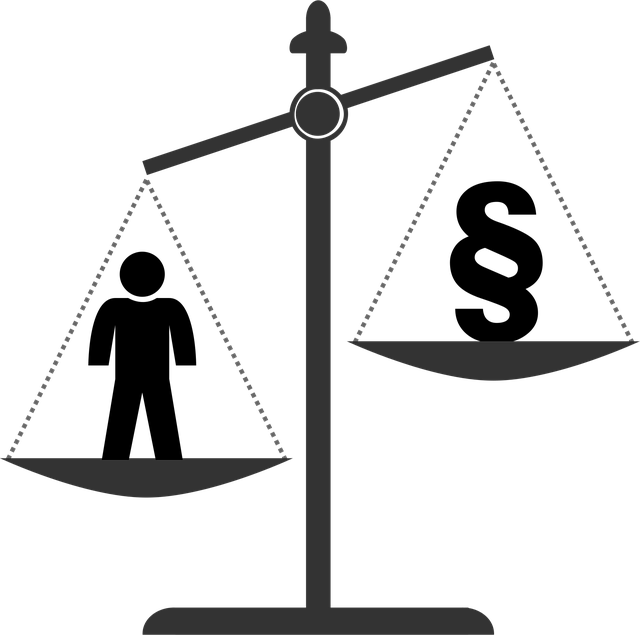Understanding the Legal Rights of the Accused is crucial when facing fraudulent financial accusations, including accounting fraud and money laundering. Individuals have a right to legal counsel, silence, and fair treatment in a transparent justice system. Skilled attorneys help navigate complex charges, challenge evidence validity, and ensure equality under the law for all accused persons.
Fraudulent financial practices pose a significant threat to individuals, businesses, and the economy as a whole. This article delves into the intricate world of financial fraud, offering insights on understanding its various forms, from accounting manipulation to investment scams. We explore the legal framework in place to combat these practices, emphasizing the critical importance of safeguarding the legal rights of the accused while ensuring justice is served. By navigating the justice system fairly, we can maintain trust and integrity in the financial sector.
- Understanding Fraudulent Financial Practices
- Legal Framework for Accused Individuals
- Rights and Defenses for the Accused
- Navigating the Justice System Fairly
Understanding Fraudulent Financial Practices

Fraudulent financial practices refer to a range of illegal activities aimed at gaining an unfair advantage in the realm of finance and business. These practices can take many forms, from accounting fraud to money laundering, and they often involve deliberate deception for personal gain. Understanding these schemes is crucial for both individuals and institutions looking to protect their financial integrity. By recognizing common signs such as manipulation of financial records, unauthorized transactions, or suspicious investments, one can help mitigate the risk of becoming a victim.
The legal rights of the accused in cases of fraudulent financial practices are an important aspect to consider. Accused individuals have the right to legal representation and a fair trial, with evidence presented by prosecutors scrutinized by a jury. For his clients facing such charges, it’s vital to seek counsel from experienced professionals who can navigate these complex legal waters. While some might attempt to avoid indictment through various strategies, including pleading guilty to lesser charges or negotiating plea deals, the ultimate goal should be to uphold one’s innocence and ensure justice is served.
Legal Framework for Accused Individuals

When accused of fraudulent financial practices, individuals face a complex web of legal considerations. The first step is understanding one’s legal rights within this framework. Accused persons have the right to remain silent, ensuring their words cannot be used against them in court. They are also entitled to legal counsel, allowing them to build a robust defense strategy. The presence of an attorney is crucial for navigating the intricacies of white collar and economic crimes charges.
While the goal may seem to be achieving a complete dismissal of all charges, it’s important to remember that this is not always possible. Strategizing for a strong defense involves gathering evidence, examining witness testimonies, and exploring potential loopholes in the prosecution’s case. Skilled legal representation can help accused individuals navigate these challenges, aiming to either secure a favorable outcome or at least avoid an indictment.
Rights and Defenses for the Accused

When faced with accusations of fraudulent financial practices, individuals have specific legal rights they can invoke to mount a defense. Understanding these rights is paramount in navigating the complex legal landscape and achieving extraordinary results. The accused has the right to legal counsel, ensuring they are represented by an attorney throughout the investigation and any subsequent proceedings. This representation can help them comprehend their options, gather evidence, and develop strategies to counter the allegations.
Furthermore, the accused’s defenses may include challenging the validity of the evidence presented against them. This could involve questioning the sources, methods, or interpretations of financial records, especially if there are discrepancies or lack of proper documentation. Additionally, the context in which these practices occurred is essential; certain actions might be misunderstood or taken without malicious intent. For instance, a misunderstanding between corporate and individual clients or philanthropic and political communities can significantly impact the case’s outcome.
Navigating the Justice System Fairly

Navigating the justice system fairly is paramount when addressing fraudulent financial practices, especially considering the complexities involved in white-collar and economic crimes. The legal rights of the accused are a cornerstone of this process, ensuring that corporate and individual clients are treated equally under the law. It’s crucial to understand all stages of the investigative and enforcement process, from initial suspicions to trial, to prevent any bias or injustice.
The system must be transparent and impartial, allowing both sides to present their cases without undue influence. This means providing accused individuals with the necessary resources and legal counsel to defend themselves effectively against allegations, regardless of their financial status or the scale of the perceived offense. Fairness in the justice system not only upholds the integrity of the law but also fosters a sense of trust among citizens, crucial for a healthy democracy.
Fraudulent financial practices pose significant challenges, but a robust legal framework ensures that justice is served. Understanding these practices and the rights of the accused are paramount in navigating the justice system fairly. By recognizing the defenses available to those faced with accusations, we can foster a balanced approach, ensuring both accountability and due process. The ultimate goal is a transparent system where the legal rights of the accused are respected, while deterring and penalizing fraudulent behavior.






